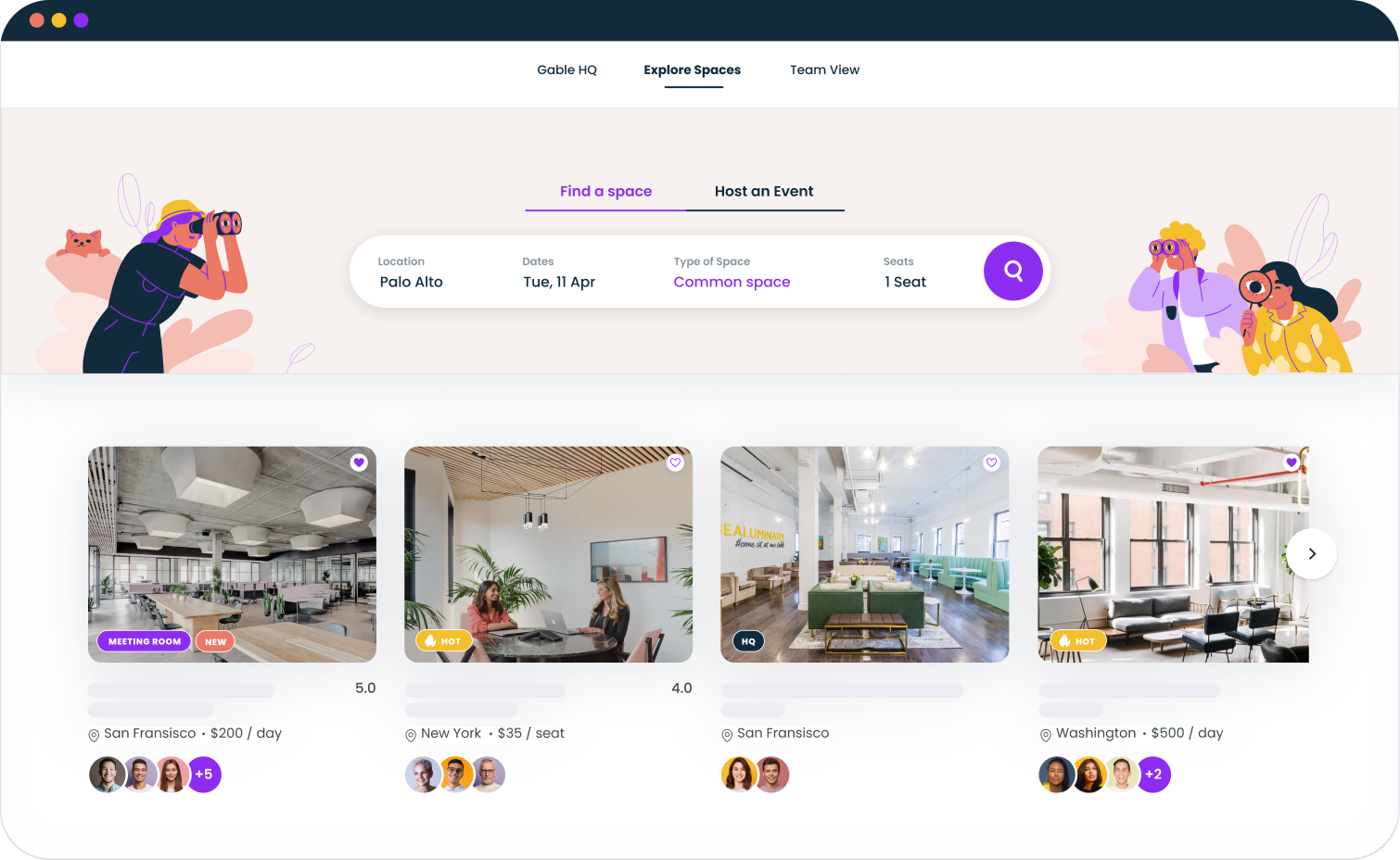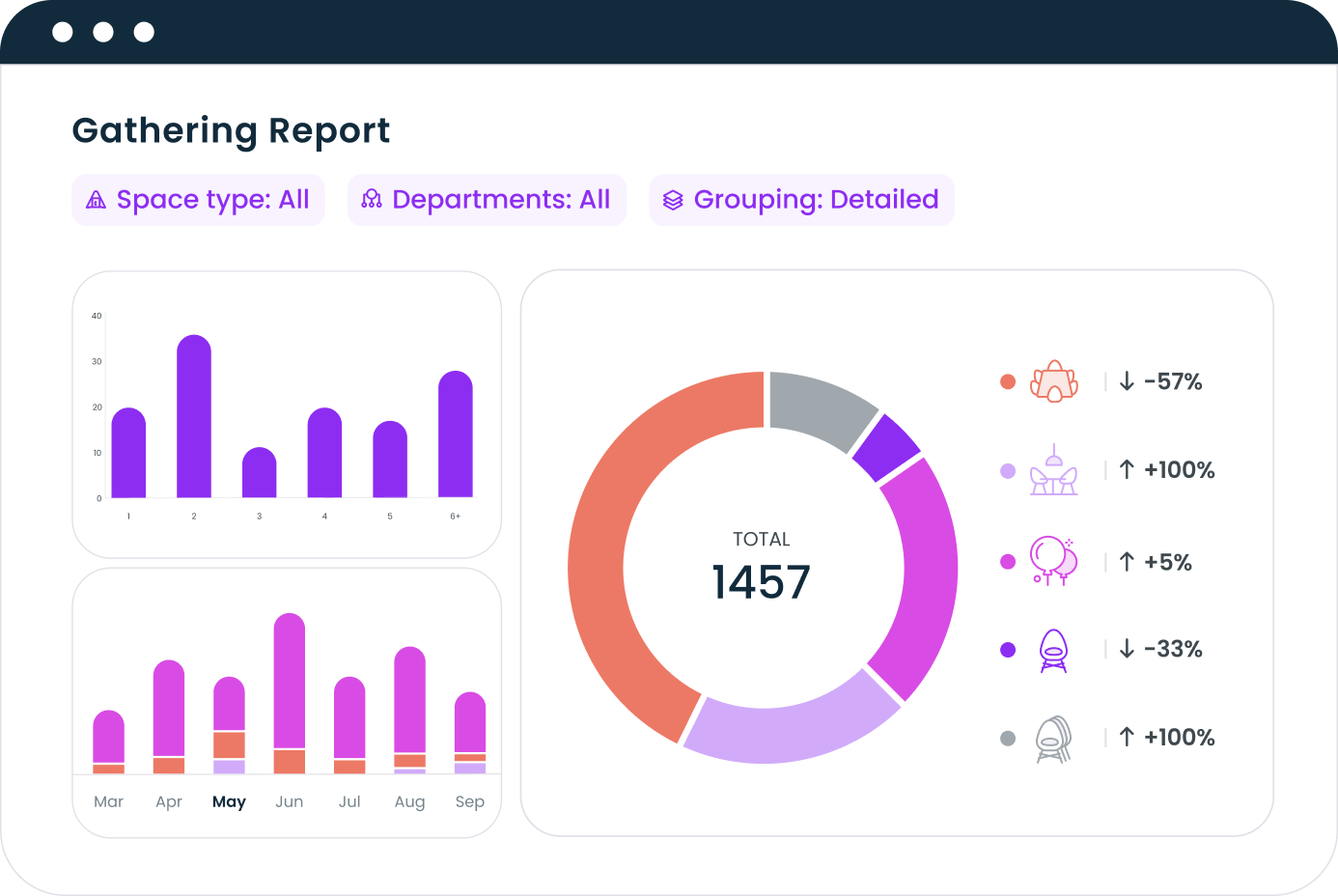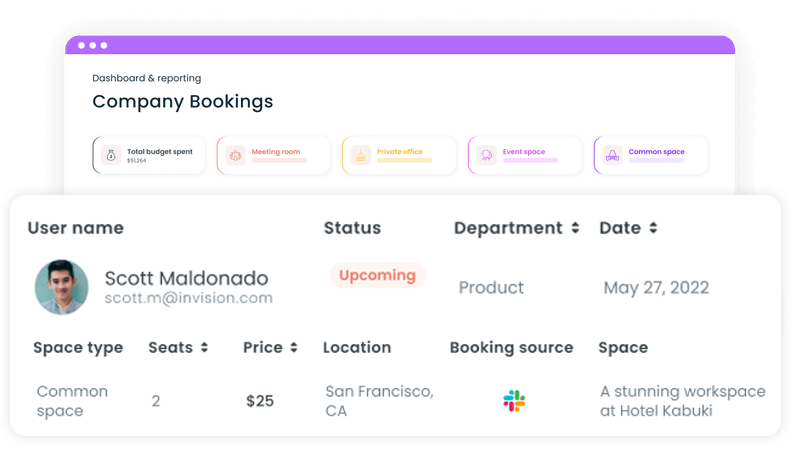Coworking spaces make 89% of members happier, with 74% reporting increased productivity. Beyond the feel-good stats, these flexible workspaces are delivering tangible business results: companies save up to 30% on operational costs alone, while employees gain the flexibility and community they're demanding in today's work landscape.
With companies worldwide struggling to justify expensive, underutilized office space, forward-thinking organizations are discovering that coworking spaces can create environments where productivity, collaboration, and employee satisfaction thrive.
Whether you're a small business owner or a workplace professional exploring shared offices, understanding the advantages of coworking can transform how you think about where work happens. Companies are increasingly recognizing these benefits, with the global coworking market continuing to expand rapidly.
What makes coworking spaces different from offices
Coworking spaces are essentially shared offices where hybrid and remote employees (or self-employed professionals) go to get their work done.
Unlike offices with fixed layouts and long-term leases, coworking spaces foster collaborative environments designed for flexibility and community. They offer a mix of shared and private spaces where people from different teams and companies work side by side, creating opportunities for networking and knowledge sharing.
The physical space itself reflects this philosophy. Modern coworking spaces feature intentionally designed spaces that include everything from phone booths for private calls to collaborative meeting rooms.
This design approach extends to the business model, too. Instead of committing to long-term leases, companies and individuals can access flexible office spaces through memberships that scale with their needs.

Enhanced productivity and focus
The productivity benefits of coworking aren't just anecdotal: 74% of coworkers report being more productive, with 69% saying they've acquired new skills and 68% claiming they've upgraded their skills since joining a coworking space.
What drives this enhanced productivity boost? Coworking fosters accountability through what researchers call "body doubling"—working alongside other people naturally encourages focus and task completion. Beyond peer motivation, coworking also eliminates common productivity killers found in traditional offices and home offices, like background music and distractions.
Networking opportunities and community building
One of the most transformative coworking benefits is the ability to create meaningful connections. 82% of survey respondents have expanded their professional network since joining a coworking space, turning daily work into networking opportunities that often lead to business outcomes.
The community aspect addresses a critical remote work challenge: isolation. 83% of individuals working from coworking spaces feel less isolated and lonely. This improved sense of community translates into better mental health and work-life balance, with 70% of coworking space members reporting they feel healthier.

Gable On-Demand offers the largest premium network of flexible spaces worldwide, plus a seamless platform to track usage and budgets.
Learn more
Cost savings and memberships
The financial advantages of coworking extend beyond the monthly membership fees. A company can save as much as 30% on operational costs by working from a flexible space, making it an attractive alternative to office leases.
Offices typically come with significant overhead costs: security deposits, utilities, maintenance, cleaning services, internet setup, furniture, and equipment. Coworking memberships bundle all these expenses into a single, predictable monthly cost.
This pay-as-you-go model is particularly valuable for companies experiencing headcount growth, especially in markets without an office or where demand needs to be gauged.
For distributed teams, on-demand spaces offer an alternative. Companies can provide employees with access to workspaces globally, eliminating the need for offices in every location while still supporting in-person collaboration.

Flexibility and work-life balance improvements
For employees who are navigating the challenges of working remotely, flexible spaces provide a crucial balance between structure and flexibility.
The variety of options within coworking spaces allows workers to tailor their environment to their work mode, whether it's focus time, in-person collaboration, or a client meeting.
The location flexibility is equally important. Many coworking spaces are part of global networks, allowing employees to work from different cities without losing access to amenities. This geographic flexibility supports everything from business travel to work-life balance, making retaining and hiring talent easier.
Access to professional amenities and resources
Modern coworking spaces function as comprehensive business ecosystems that are fully furnished and equipped with a range of amenities, from coffee shops and conference rooms to breakaway areas, exercise facilities, and more.
The service component is equally valuable. On-site community managers provide everything from mail handling and package receipt to event coordination and technical support. This means professionals can access reception-style services without hiring dedicated administrative staff.
For companies managing distributed teams, on-demand spaces also provide consistent amenities across multiple locations. Whether your employee is working in San Francisco, Austin, or Boston, they have access to the same quality of workspace, technology, and support services, creating standardized work experiences regardless of geographic location.
Discover how Upwork used Gable On-Demand to cut costs by 56%, foster collaboration, and run a data-driven workplace.
Read Upwork's Story
Supporting different work styles and team dynamics
The most successful coworking spaces recognize that effective work happens in many different ways.
This variety addresses a critical limitation of traditional office spaces, where one-size-fits-all approaches often leave certain work styles underserved. Some professionals thrive in bustling, energetic environments where they can feed off the productivity of others. Others need quiet, private spaces for deep focus work. Flexible spaces accommodate both preferences within the same physical location.
For distributed teams that only occasionally work together in person, coworking spaces provide on-demand access to collaborative spaces without the overhead of maintaining an office year-round. Teams can book conference rooms, team workstations, or entire private areas for specific projects, meetings, or collaboration sprints.
Global accessibility
One of the most compelling benefits of coworking spaces is their global reach, which transforms how companies approach expansion and employee mobility. Instead of establishing offices in new markets, companies can provide employees with immediate access to workspaces in hundreds of cities worldwide.
The trend toward suburban and secondary markets adds another layer of accessibility. 45% of all coworking spaces in the United States were located in suburban neighborhoods in 2024, bringing professional workspace options to areas that previously lacked them.
Global accessibility also supports business travel and temporary relocations. Instead of working from hotel lobbies or trying to find suitable workspace in unfamiliar cities, professionals can access vetted, professional environments with stable connectivity, conference rooms, and business amenities.
Enhanced creativity and innovation
Unlike offices with static layouts and homogeneous teams, flexible spaces intentionally create environments that stimulate new thinking. Professionals often find the most creative solutions by interacting with different people. New thought processes and unique perspectives are a significant benefit of working around a multitude of teams in various fields and industries.
This cross-pollination effect happens naturally in well-designed spaces. Open collaboration areas encourage brainstorming and idea sharing, while quiet corners provide space for reflection and deep thinking. Natural light, plants, and comfortable furnishings create environments that feel more inspiring than corporate office spaces.
Building a stronger company culture in distributed teams
The foundation of workplace culture is often the face-to-face interactions between employees. In today's remote-first world, achieving this can be harder when colleagues work in isolated spaces. A coworking space helps employees replicate that sense of community they may be missing.
The shared experience of working in flexible spaces can actually strengthen team bonds. The informal interactions—grabbing coffee together, chatting between meetings, sharing meals in communal areas—recreate the casual bonding that happens naturally in office environments.
See how Gable can give your team access to coworking spaces worldwide while providing the insights and control you need to optimize your workplace.
Get a demo





.svg)





.svg)










.svg)













